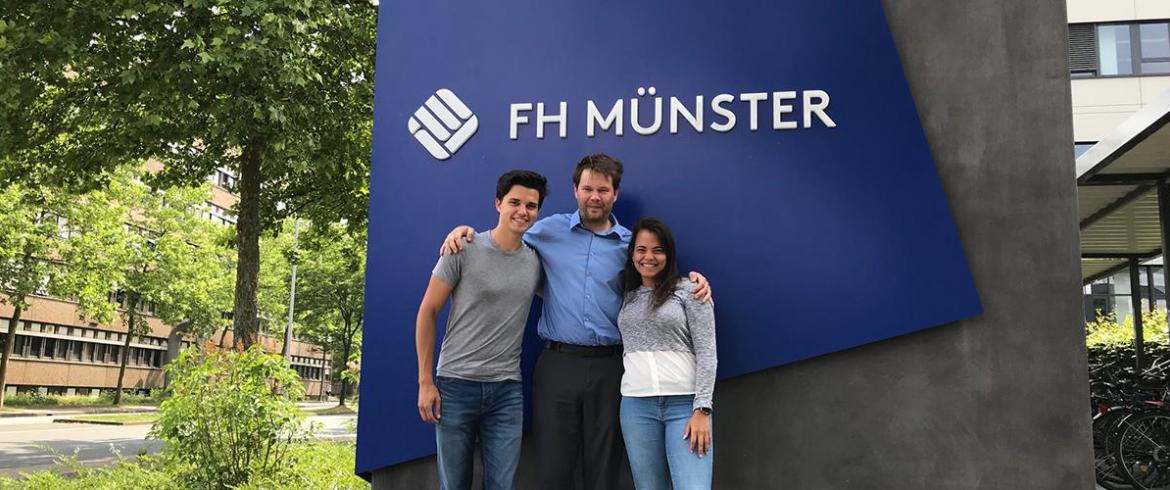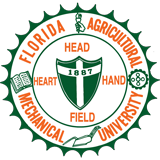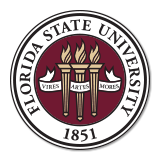
Professor Raphael Kampmann strives to forge unique and beneficial opportunities for his engineering students. As a civil engineer from Germany, he has crafted programs abroad that provide experiential and hands-on learning for his students. For the past five years he has used his academic connections to create internship opportunities in Germany for FAMU-FSU Engineering students.
With connections to three universities: Rhein-Waal University of Applied Sciences, University of Applied Sciences Munster and University of Wuppertal, Kampmann places ambitious engineering students in summer internships at these three engineering schools.
“It was very beneficial for me when I went abroad for my first research,” Kampmann said. “It was really an eye-opening experience. I developed these programs to let other people experience how great this can be.”
In May 2018, engineering students from different fields and backgrounds packed their bags and made their way to the three German universities.
“It was my first time traveling by myself,” said Michael Calisi, an electrical engineering senior.
Others in the group were no strangers to international travel. Civil engineering senior Ariana Morales is no stranger to new environments. She moved to Canada from Venezuela at 17 and later to Tallahassee to attend Florida State University.
Before they stepped foot in the country, Kampmann referred each of his pupils to a professor at the host university to serve as a mentor for the summer. Kampmann and the mentors assigned the students work related to their individual field of study. Civil engineering students Zabdyk Baumeister and Morales, as well as chemical engineer Ross Schneider researched at the University of Applied Sciences in Munster, while chemical engineer Juan Buitrago and electrical engineer Michael Calisi studied in Rhein-Waal University and Wuppertal University, respectively.
Baumeister concentrates her civil engineering degree in environment and water resources.
“We take [the environment] for granted a lot,” she said. “We take for granted where we get our water, where water goes after we use it or before we use it.” To aid in the production of more environmentally friendly materials, her research focused on chlorine contents in concrete.
Schneider studied in a biomechanics and mechatronics lab where he used EMG measurement systems, inertial measurement units, prosthetic and orthotic devices and much more. While there, he defined his major thesis: analyzing the effects of restricted knee movement on the human gait cycle.
“Every research project starts with literature,” Morales explained. Before beginning on-site work, she studied the required background for her research project. Morales was ultimately assigned work underground inside some of Germany’s many tunnels. She and German graduate students researched grout materials, studying various mixture improvements and their pumpability.
During his research, Calisi’s mentor helped him improve his coding skills and showed him how to build PCB electronic boards and circuits.
After returning, the students juxtaposed the U.S.’ classroom-based teaching style to Europe’s more hands-on approach. During their experience they all found working on a project – after learning the procedures – solidifies the knowledge best, rather than hearing lectures and later being tested on the material. In engineering, many routs can be taken to reach a desired goal, and hands-on experiences are generally superior to pen and paper methods because they are closer to on-the-job demands. As a civil engineer, Baumeister saw the fluidity of the different fields during her work when she started to include working with chemicals.
“It made me realize ‘Wow, I’m an engineer,’” she said.
Students studying abroad are forced to adapt to many basic cultural differences. Changes in language, food, people, and even landscapes can be overwhelming. New experiences can be paralyzing, but these students fully embraced it, and thrived in the experience abroad.
The language barrier was the biggest challenge they faced. Although most native Germans speak fluent English and popular cities cater to tourists, the students still had to adapt. Unlike Berlin, with a population of 3.47 million, none of the cities they lived in had a population over 400,000.
“The town I was in had a bigger immigrant population,” Calisi said. “If I wanted to go to a Turkish shop or something, their English wasn’t that good, but anywhere else it was perfect.
Schneider made it his mission to return home fluent in German. With a drive to learn and assistance from his new German-speaking friends, he became adept in the language. Morales recalled her professors offering to pay for her German lessons.
“A challenge is as difficult as you want it to be, said Morales. “The reason why you are going there is because you want to learn something – learn about a new culture, a new language.”
Getting around was surprisingly easy. German universities provide free bus and train access within the state for their registered students. Aside from their research, the students used the two and a half months traveling to the surrounding countries.
“Being in Europe, if you don’t travel you’re wasting your time,” Morales said. “It’s super cheap – you have 50 euros; you can go to another country.”
She and colleagues visited the Netherlands, Switzerland, Italy, Sweden and other adjacent countries, and even took a road trip across the continent.
“We are very comfortable here in America because we know how everything works here,” said Baumeister. “But I would encourage anyone who is thinking ‘maybe yes, maybe no,’ to do it — to put themselves out there and take the chance to travel.”
Kampmann receives only positive feedback from his colleagues abroad and always notices improvements in the students’ drive and performance in class after the Germany trip. He is not the only one who sees the trip’s benefits. The five unanimously agree their research internship gave them a new understanding on not only career goals, but on working outside the country as well. All of them see work outside the U.S. as a viable option in their future as a result of the experience.

